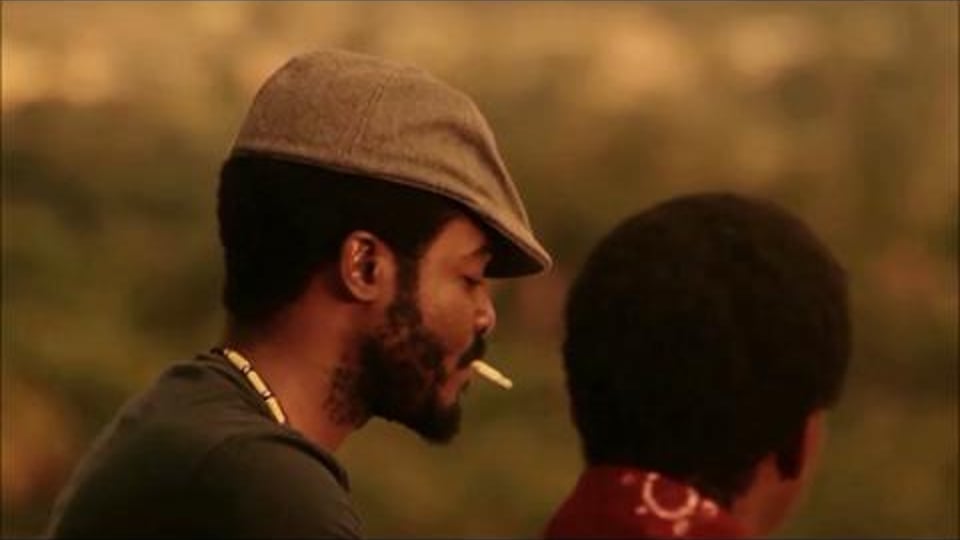First Published On MARCH 27, 2021
Confusion Na Wa was a blast of fresh air in the Nigerian cinema experience, packing valuable lessons for filmmakers. The critically acclaimed film is some sort of landmark in the young industry, following efforts like Kunle Afọlayan’s “The Figurine”, Chineze Anyaene’s “Ije” and Mahmoud Balogun’s “Tango With Me” in elevating the cinematic oeuvre of the Nigerian film industry. However, Confusion Na Wa stands out for its bold choice to eschew established approaches of the “New Nollywood films” which, at the time, relied on high budgets and production values, dazzling premieres and spectacle.
Confusion Na Wa embraced a different aesthetic entirely. I look at five valuable lessons for filmmakers.
Embrace the dark.
Confusion Na Wa wasn’t finished until 2013, but the story development began in 2009, starting from a premise from Gyang’s friend that mutated into a completely new story.
This story begins with a note on death and closes on the same, both jarring dives into the very dark comedic sensibilities of the film. Inspired by filmmakers like Quentin Tarantino and Fernando Meirelles, Gyang’s film is rife with outlaws, drugs, adultery and murder , a far cry from Nollywood staples in domestic melodrama.
Confusion Na Wa wasn’t scared of poking at the underbelly of the darker aspects of the country.
When you set out to make your movie, be unapologetic about your choices, no matter how unpopular they are.
Work with what you have.
Compared to the theatrically released Nollywood films at the time, Confusion Na Wa was made at a modest 27,000 dollars. Certainly not a micro budget film, but quite low for a film with such lofty goals, thus defying the “new Nollywood” trend of costly production budgets and marketing
It should be noted that even though most of the production budget was from a €20,000 grant from the Hubert Bals Fund of the International Film Festival Rotterdam, they still ran out of production funds. The filmmakers soldiered on despite many challenges in production and post production for several months. It all paid off eventually.
The point is, commit yourself to the enterprise. Write a story with your resources in mind. And see it through.
Filmmakers always think about faces that can sell their movies. Whether it’s a festival circuit film or straight to the box office, stars have a ton of power.
Confusion Na Wa worked because of the great writing and directing, but also because it captured imagination with its cast of big stars, veterans and exciting newcomers.
The stars in the film, Ali Nuhu (from the Northern film industry) and Ramsey Nouah (from Nollywood) are massively popular in their respective industries. And OC Ukeje was, at the time, a well regarded up and comer with a couple of awards in bag. It didn’t happen easily however.
As Tom Rowland Rees, the co-writer and co producer painfully noted:
“Yinka showed the script to Nollywood legend Ramsey Nouah, whom he had worked with on a previous project, and he liked it so much he offered to act in the film for free and contribute equipment to the production. That kind of thing doesn’t happen, but it did. Kenneth got in touch with Kannywood star Ali Nuhu and he said more or less the same thing as Ramsey. OC Ukeje, who was still an up-and-comer back then, jumped on board… obviously.“
Understanding the audience
Growing up in the complex multi cultural city of Jos, Kenneth Gyang wanted to tell a story about the unfairness of a society, broken down by politics and religion. But like Fela Anikulapo Kuti, whose song Confusion Break Bones inspired title of the film, Gyang is able to find a great blend of entertainment and harsh social criticism.
Bottom line is, audiences want a great time at the movies, it should not come at the expense of art.
Find Your Influences
Many parallels have been found in Confusion Na Wa and Pulp Fiction: both films were shot with minuscule budgets, both have the unconventional cycle of disordered narratives and intrusions of self reflective voice overs. Kenneth Gyang says:
“.. and of course Quentin Tarantino too. And so you will actually see it in my first film that I try to follow the structure almost in the same way they actually tell their stories.“
Be original, but you don’t have to hide your Influences. It is normal to have influences that you can learn from, copy and even benchmark.
By Taiwo Egunjobi


Leave a Reply